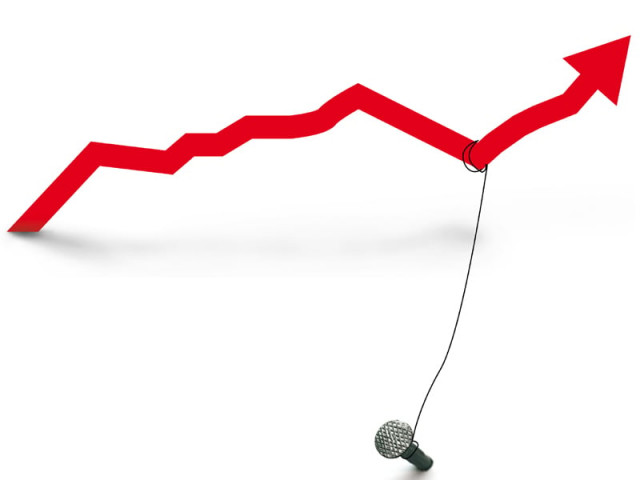Easing inflation
With inflation clocking in at 5.8 per cent, there is every likelihood that the SBP will further reduce interest rates.

For the current year, which is going to end in June, the average inflation target has been revised downward to 9% from the earlier 9.5%. DESIGN: ANAM HALEEM
This is obviously good for the economy, and it is good for the people. There are several reasons why this is good. The basic premise behind why low inflation is good for the economy is because it encourages people to get their money out of safe havens and put it to work in investments.
With inflation clocking in at 5.8 per cent, there is every likelihood that the SBP will further reduce interest rates. This is going to be even better for the economy. It will force banks to pull their liquid reserves out of areas where they are earning little or no interest and lend them out to the private sector. This will — in theory, at least — spur industrial growth which will have a multiplier effect. This will also — again, in theory — discourage banks from lending to the government and, instead, focus on other areas to keep up their profitability; again, good for the economy.
The major reason for the decline in inflation — apart from the rebasing — is the way the CPI basket is configured. The most important categories are food and non-alcoholic beverages. Average oil prices have been declining for a while, or have been steady. With the just announced decrease in oil prices, the fall in inflation was inevitable. In foods, it is pretty even, with some food categories declining and others rising.
And it is expected that this downward trend in inflation will continue for the immediate term, despite government excess and over-spending.
Published in The Express Tribune, May 5th, 2013.



















COMMENTS
Comments are moderated and generally will be posted if they are on-topic and not abusive.
For more information, please see our Comments FAQ